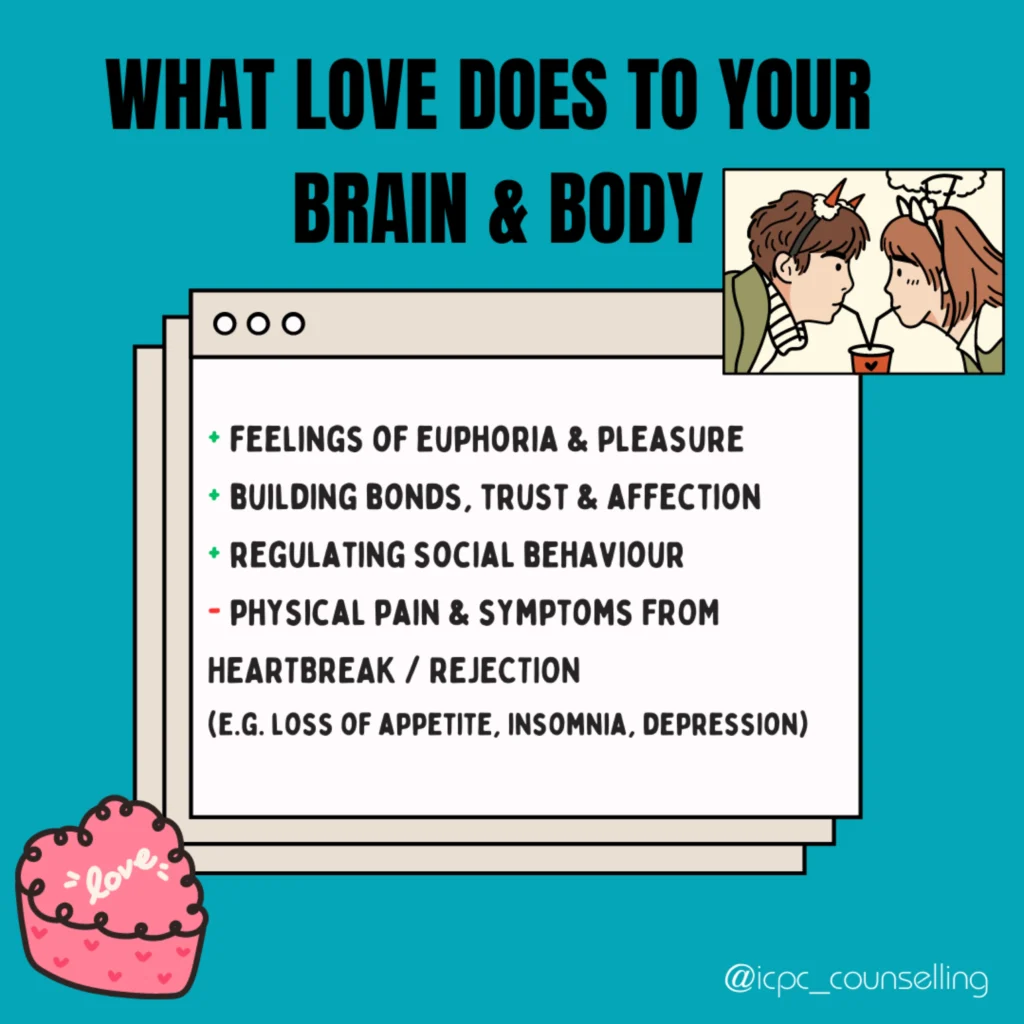
What Does Love Do Your Brain And Body?
The concept of love has captivated people for centuries. Yet, the science behind how love affects the brain and body is only beginning to be understood. A recent article published by the American Psychological Association delves into this topic and explains the complex neurochemical processes that occur when we fall in love…
Positive Effects of Love:
When we experience love, the brain releases a series of chemicals, including dopamine, oxytocin, and vasopressin.
- Dopamine is a neurotransmitter that is associated with pleasure and reward, and plays a crucial role in the brain’s reward system.
- Oxytocin is often referred to as the “cuddle hormone” and is associated with social bonding, trust, and affection.
- Vasopressin is a hormone that is involved in the regulation of social behavior and plays a role in the formation of long-term relationships.
The release of these chemicals creates a feeling of euphoria and pleasure, which can lead to feelings of attachment and love. The article also notes that this feeling is similar to the high that drug users experience, indicating the powerful impact of love on the brain.
Negative Effects of Love:
However, rejection and heartbreak can activate the same regions of the brain that are associated with physical pain, leading to symptoms such as loss of appetite, difficulty sleeping, and even depression.
Understanding Love:
Understanding the neuroscience of love can help us better understand our own emotions and behaviors in relationships. By recognizing the powerful effects that love has on the brain and body, we can take steps to nurture and protect our relationships, and cope with the challenges that love can bring.
In conclusion, love is a complex and multifaceted emotion that can have both positive and negative effects on the brain and body.
Do you have questions about the relationships in your life?
Are they going the way you want them to?
Are they bringing up difficult feelings for you?
Talk to our mental health professionals to gain a deeper appreciation for the power of this emotion, and take steps to foster healthy, fulfilling relationships in your life.
